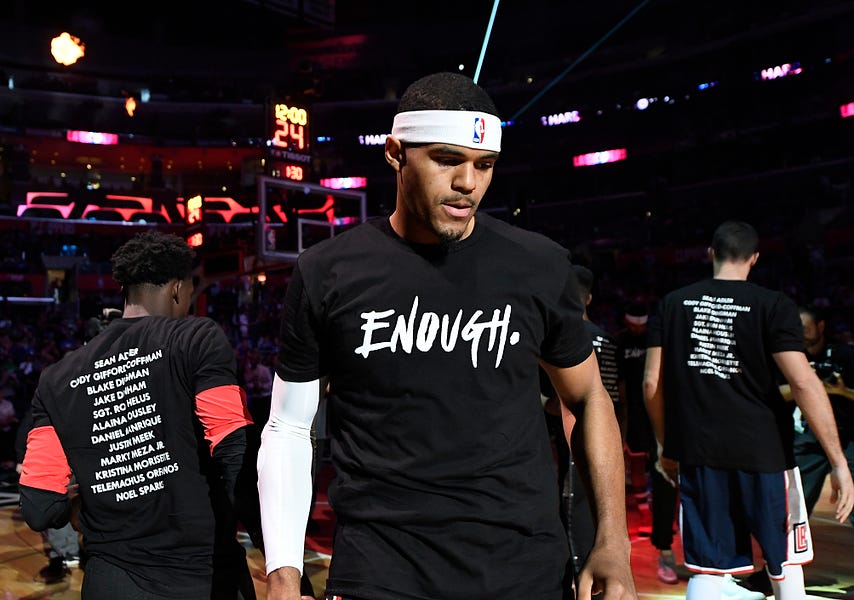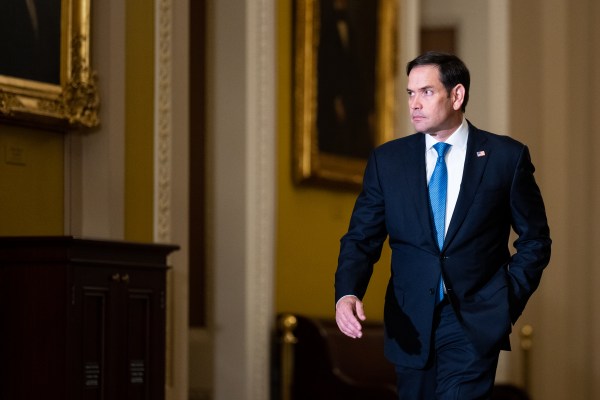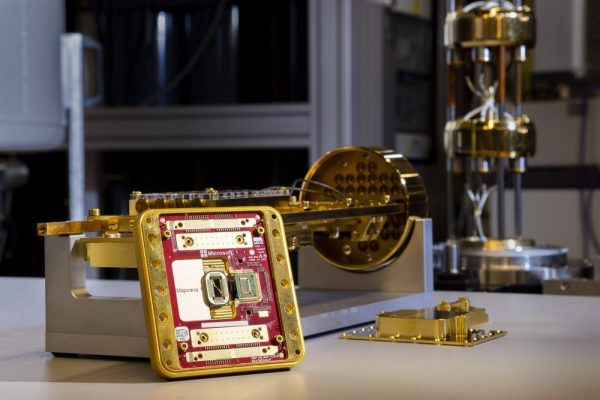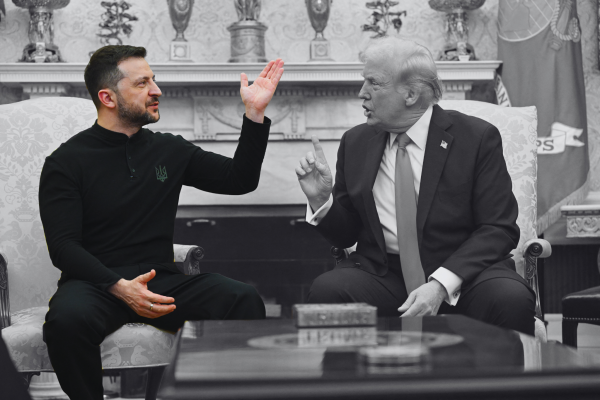According to numerous reports the NBA is poised to let players wear jerseys with “social justice messages” on them, perhaps in lieu of their last names.
I think this is a bad idea. Many people disagree.
Sports Illustrated loves the idea. In an article titled, “The NBA Would Make A Strong Statement With Profound Jersey Decision,” SI’s Gabe Zaldivar writes:
The decision for the NBA makes sense as, first, it’s the right thing to do. Two, public opinion has shifted immensely in favor of the BLM movement.
Lastly, there are players who are reluctant to enter the basketball fray with demonstrations demanding change still taking place.
Allowing players more of a platform does bring those hesitant players another avenue to voice their support.
We live in a moment in which even old episodes of The Golden Girls are being memory-holed for perceived racial insensitivity and statues of abolitionist union soldiers are being torn down and decapitated. So it shouldn’t surprise anyone that the NBA is rushing headlong to get on the right side of the Cause.
But let me offer some reasons why I think this is ill-advised.
First, contrary to some virtue signalers on Twitter, let me say that I don’t object to this because it will ruin the experience of watching NBA games for me. I don’t watch professional basketball and haven’t sat through a whole NBA game in decades. Indeed, I might be more inclined to watch now just for the chance to hear a confused announcer accidentally say, “James ‘Defund the Police’ with a beautiful pass to Phil ‘Believe All Women.’”
More important, as I’ve been writing for years, I’m a conservative in large part because I want politics to play a smaller role in people’s lives. Many of the problems in America today are attributable to the fact that politics has become a kind of secular faith, a lifestyle choice, that infects social relations and undermines institutions. This is a now well-established finding in social science. It manifests itself in dating, marriage, faith, and at the workplace. “Partisanship, for a long period of time, wasn’t viewed as part of who we are,” political scientist Sean Westwood told the New York Times. “It wasn’t core to our identity. It was just an ancillary trait. But in the modern era we view party identity as something akin to gender, ethnicity or race — the core traits that we use to describe ourselves to others.”
While I suppose it’s better than seeing people solely through the prism of gender, ethnicity or race, I don’t think this is a healthy development.
Institutions—civic groups, religious organizations, businesses, and even the NBA—have specific roles to play in society. The more we expect them to be wholly loyal to one partisan or ideological cause—however just we think that cause—the more we undermine the roles they play. I want to live in a society where we have as many safe harbors from politics as possible. (One benefit of getting politics out of places it doesn’t belong is that it might get redirected to where it does—government.)
Depending on the issue, many on the right and left disagree with me. For instance, I am embarrassed by the effort to turn refusing to wear a mask into a symbol of manly patriotism. Similarly, I was appalled by epidemiologists saying “never mind” about social distancing when it was for a cause they agreed with—or were too scared to criticize. The point is that politicizing things that don’t need to be politicized fuels the sense that no one is to be trusted at face value and all institutions are guided by ideological agendas.
In 2003, Washington Post columnist E.J. Dionne criticized ESPN’s decision to hire Rush Limbaugh as a commentator on the grounds that he disliked the politicization of sports.
Most of us who love sports want to forget about politics when we watch games. Sports, like so many other voluntary activities, creates connections across political lines. All Americans who are rooting for the Red Sox in the playoffs are my friends this month, no matter what their ideology.
Politicizing everything from literature to music to painting and sports was once a habit of the left. The Communist Party’s now-defunct newspaper once had a sports column called “Out in Left Field.”
Now, it’s the turn of the right to politicize everything.
I disagreed with his analysis of the right then, but I’m open to the idea that it’s true now. Of course, Dionne has had a change of heart as well.
Regardless, 2003 E.J. Dionne was right that sports is one of those institutions that allows people from different walks of life, of different faiths and with different politics, to have a safe space to socialize and discover a common humanity. I see this every time I go to my cigar shop, where there’s an enormous diversity of people—different races, different “classes,” occupations etc.—but everyone can talk for hours about sports as equals. We all probably know men who can’t talk to their fathers about anything, except sports.
That’s my philosophical objection to all of this. People who disagree with me can pound the table about how I am simply exercising my white privilege all day. There are few philosophical commitments I am more comfortable expressing.
The NBA’s quagmire.
Still there are practical problems as well.
First, the idea that this performative signaling on the court will actually solve the underlying social problems people are concerned with strikes me as wishcasting.
But more importantly, the NBA is poised to join Facebook and Twitter in the great “platform vs. publisher” quagmire. That debate is dumb enough when it comes to social media. It will be a bonfire of idiocy when the NBA wades in.
What slogans count as acceptable social justice slogans?
Recall, that it wasn’t long ago that many in the NBA beclowned themselves by becoming craven lickspittles to China in order to keep the money spigot open. Last October Houston Rockets general mnager Daryl Morey rightly tweeted support for protesters in Hong Kong. The Chinese Communist Party took offense, and the NBA quickly proceeded to prostrate itself to China. The league shamefully kicked out fans carrying pro-Hong Kong signs from an NBA exhibition game in Philadelphia. Lebron James got snared in the controversy for giving a weasel-worded defense of China that would get him canceled if he said something similar about the Minneapolis Police Department.
Well, just to set the record. Racism in China is a far bigger problem—and far more systemic in a real, not metaphorical way—than in the United States. The Chinese literally have a Jim Crow style system that discriminates in employment, travel, and education against non-Han Chinese. They currently have roughly a million Uighurs in re-education camps. Oh, and I’m just guessing here, but police abuses are probably a bigger problem in China than they are in the U.S.
So, tell me, NBA, under this new policy can players wear “Free Hong Kong” or “Uighur Lives Matter” on their jerseys? What about pro-life messages or support for the NRA? If so, good for you. If not, why not? Regardless, you’re going to have to have some standard. Because, I’m just assuming you’re not going to allow jerseys with “Support the Police” or “The South Will Rise” on them. Giving yourself to the power to allow good sloganeering also gives you the responsibility of censoring bad sloganeering. Is that what the NBA is for? (Indeed, Memphis Grizzlies rookie Ja Morant already had to apologize and delete social media messages that featured a photo of a jersey with an anti-police message on it.)
The point is, once you start picking and choosing which social justice slogans are acceptable, well, you’re down the metaphorical Section 230 rabbit hole. This current moral panic will end. But if the NBA goes through with this, they will be creating problems for themselves for years to come.
And, they might just be launching a woke arms race across professional sports, that will leave the country more politicized and more polarized and render sports another realm where we can’t take a break from what divides us.









Please note that we at The Dispatch hold ourselves, our work, and our commenters to a higher standard than other places on the internet. We welcome comments that foster genuine debate or discussion—including comments critical of us or our work—but responses that include ad hominem attacks on fellow Dispatch members or are intended to stoke fear and anger may be moderated.
With your membership, you only have the ability to comment on The Morning Dispatch articles. Consider upgrading to join the conversation everywhere.